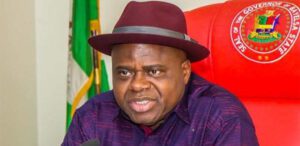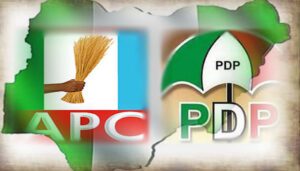Day one action: President Tinubu suspends fuel subsidy
…Nigerians resort to panic buying – Report
…Fuel subsidy will unlock N7trn revenue, ease debt – CPPE
…Policy will draw Nigeria backward – NLC National President
…Fix food inflation, structure for social investments before removing subsidy – BudgIT Director
…US President, Biden vows to support Tinubu’s economic policies
By Mathew Ibiyemi
In line with his electoral promise to hit the ground running from day one upon assumption of office, President Bola Ahmed Tinubu has announced the end of fuel subsidy in Nigeria.
Tinubu made the pronouncement while delivering his inauguration speech at the Eagle Square yesterday.
According to him, “We commend the decision of the outgoing administration in phasing out the petrol subsidy regime which has increasingly favoured the rich more than the poor. Subsidy can no longer justify its ever-increasing costs in the wake of drying resources.
“We shall, instead, re-channel the funds into better investment in public infrastructure, education, health care and jobs that will materially improve the lives of millions,” he said.
In November 2021, the federal government had earlier announced its plan to remove the fuel subsidy and replace it with a monthly N5,000 transport grant for poor Nigerians but the plan was suspended after facing stiff opposition from the Nigeria Labour Congress (NLC) and Trade Union Congress (TUC) threatened to embark on mass protests.
Nigerians resort to panic buying – Reports
Shortly after the announcement by President Bola Ahmed Tinubu on the removal of fuel subsidy, petrol stations in Lagos and Ogun states started witnessing queues.
According to reports, some Nigerian National Petroleum Corportation (NNPC) stations around the Lagos-Abeokuta axis, Ota, Ikeja, Alausa were crowded by motorists who rushed to buy the product.
It was also gathered that some private stations were not selling the product as of the time of filing this report.
Policy will draw Nigeria backward – NLC National President
The National President of the Nigeria Labour Congress(NLC) Comrade Joe Ajaero in response noted that the policy will make Nigeria to retrogress.
In a chat with Nigerian NewsDirect, Ajaero said the comment on fuel subsidy removal is not well thought out, coming as an inaugural speech.
“It is going to draw the economy of the country backward by over 50 per cent within the next 48 hours.”
“Nigerians will speak in one accord at the appropriate moment.”
Fix food inflation, structure for social investments before removing subsidy – BudgIT Director
Oluwaseun Onigbinde, the Director of BudgIT responding on Twitter said, “You can’t remove subsidy without offering to reduce the waste in government. You can’t be living large while the citizens bear the higher cost of living. You are the leader. You show example and earn trust.
“Subsidy Removal must happen but it requires tact. You have to figure out how to handle food inflation, provide alternative means of transport and ramp up social investment under a well-structured social investment program.
“Anything else is a pathway to social disorder,” He concluded.
We need shock absorbers first – SDP Presidential Candidate, Adewole
The Presidential Candidate for the Social Democratic Party in the February 2023 general election has stated that Nigeria needs shock absorbers before fuel subsidy can be removed.
Reacting via his twitter handle, Adewole said, “I don’t want to seem impatient or trigger-happy in criticism of brand-new @officialABAT. But it is not a neat way to announce a cost-driving macroeconomic policy like fuel ‘subsidy’ removal by just dropping it in an inaugural address. We need shock absorbers first. Renewed Hope?”
Fuel subsidy will unlock N7trillion revenue, ease debt – CPPE
The Centre for the Promotion of Private Enterprise (CPPE) has noted that fuel subsidy removal would unlock about N7 trillion into the federation account which would reduce fiscal deficit, and ultimately ease the burden of mounting debt.
Dr Muda Yusuf, Founder, Centre for the Promotion of Private Enterprise (CPPE), in an interview with the News Agency of Nigeria (NAN) on Monday in Lagos, made the assertion while reacting to President Tinubu’s inaugural address.
He noted that it was currently extremely difficult to attract private investment into the petroleum downstream sector because of the unsustainable subsidy regime and the stifling regulatory environment.
“The subsidy removal will eliminate the distortions and stimulate investment as we would see more private investments in petroleum refineries, petrochemicals and fertiliser plants,” Yusuf said.
According to him, post subsidy regime will unlock investments in pipelines, storage facilities, transportation and retail outlets.
“We will see the export of refined petroleum products petrochemicals and fertiliser, as private capital comes into the space and quality jobs will be created.
“There is a foreign exchange effect and this will result from the import substitution as petroleum products importation progressively decline and this will conserve foreign exchange and boost our external reserves.
“Increase in investment would translate into more jobs in the petroleum downstream sector while the smuggling of petroleum products across the borders will come to an end with a market pricing of refined products,” he said.
Yusuf emphasised the need to put an end to the Nigerian National Petroleum Corporation Ltd. (NNPC) monopoly in the supply of petroleum products.
This, he said, was crucial to allow for competition from private sector players which in turn gives room for subsidy removal to be sustainable.
He, however, called for palliatives which should be segmented into immediate, short term and medium term deliverables.
He said the immediate and short term options include wage review in public service, and introduction of subsidised public transportation schemes across the country.
“As well as reduction in import duties on intermediate products for food related production to moderate food inflation.
“In the medium to long term, there should be accelerated efforts to upscale domestic refining capacity, driven by private investments; accelerated investments in rail transportation by government to ease logistics of fuel distribution across the country as well as domestic freight costs,” he said.
U.S. President, Biden vows to support Tinubu economic policies
The President of the United States (POTUS), Joe Biden has pledged to support President Bola Tinubu policies on economic growth, improved security architecture and other critical aspects of his government.
Biden made this vow in a statement, while congratulating Nigeria’s new president Tinubu on Monday.
Recall that Tinubu and the Vice President, Kashim Shettima were sworn in respctively by the Chief Justice of Nigeria, Kayode Ariwoola.
The U.S. President reiterated his administration’s readiness to work with Tinubu “to strengthen ties between the United States and Nigeria.”
Biden said, “On behalf of the people of the United States, I send warm wishes to the government and people of Nigeria as they inaugurate a new President. I look forward to continuing this work with President Tinubu to support economic growth, advance security, and promote respect for human rights.”
He expressed optimism about the ideas and energy of the dynamic connection between the two countries, noting that the U.S. will continue to work closely with the most populous country in Africa.
Biden said, “As Africa’s largest democracy and economy, Nigeria’s success is the world’s success. Elected leaders owe it to their people to show that democracy can deliver for their needs.
“And the United States will continue to work closely with Nigeria, as a friend and partner, to deliver a more peaceful and prosperous future for our world,” he added.




